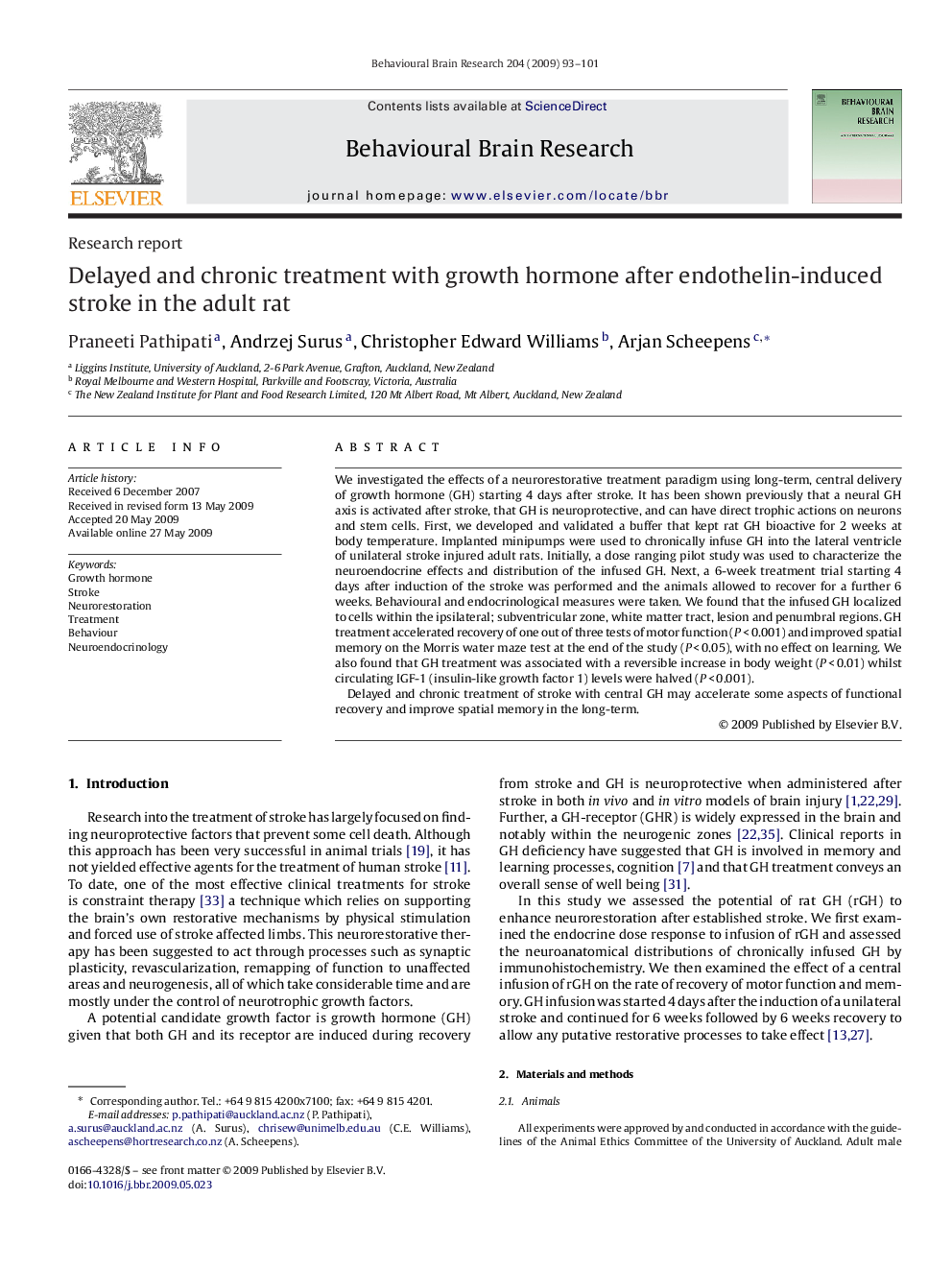| Article ID | Journal | Published Year | Pages | File Type |
|---|---|---|---|---|
| 4314686 | Behavioural Brain Research | 2009 | 9 Pages |
We investigated the effects of a neurorestorative treatment paradigm using long-term, central delivery of growth hormone (GH) starting 4 days after stroke. It has been shown previously that a neural GH axis is activated after stroke, that GH is neuroprotective, and can have direct trophic actions on neurons and stem cells. First, we developed and validated a buffer that kept rat GH bioactive for 2 weeks at body temperature. Implanted minipumps were used to chronically infuse GH into the lateral ventricle of unilateral stroke injured adult rats. Initially, a dose ranging pilot study was used to characterize the neuroendocrine effects and distribution of the infused GH. Next, a 6-week treatment trial starting 4 days after induction of the stroke was performed and the animals allowed to recover for a further 6 weeks. Behavioural and endocrinological measures were taken. We found that the infused GH localized to cells within the ipsilateral; subventricular zone, white matter tract, lesion and penumbral regions. GH treatment accelerated recovery of one out of three tests of motor function (P < 0.001) and improved spatial memory on the Morris water maze test at the end of the study (P < 0.05), with no effect on learning. We also found that GH treatment was associated with a reversible increase in body weight (P < 0.01) whilst circulating IGF-1 (insulin-like growth factor 1) levels were halved (P < 0.001).Delayed and chronic treatment of stroke with central GH may accelerate some aspects of functional recovery and improve spatial memory in the long-term.
